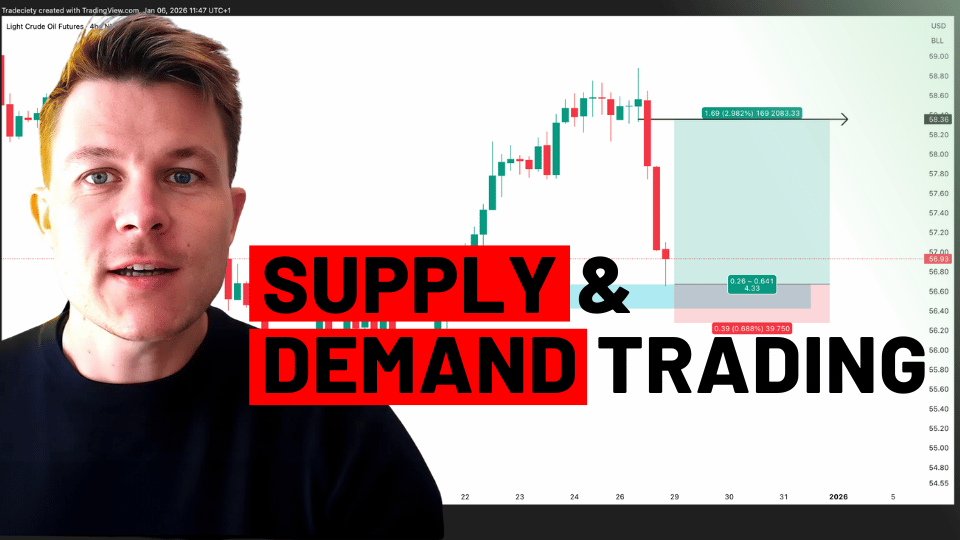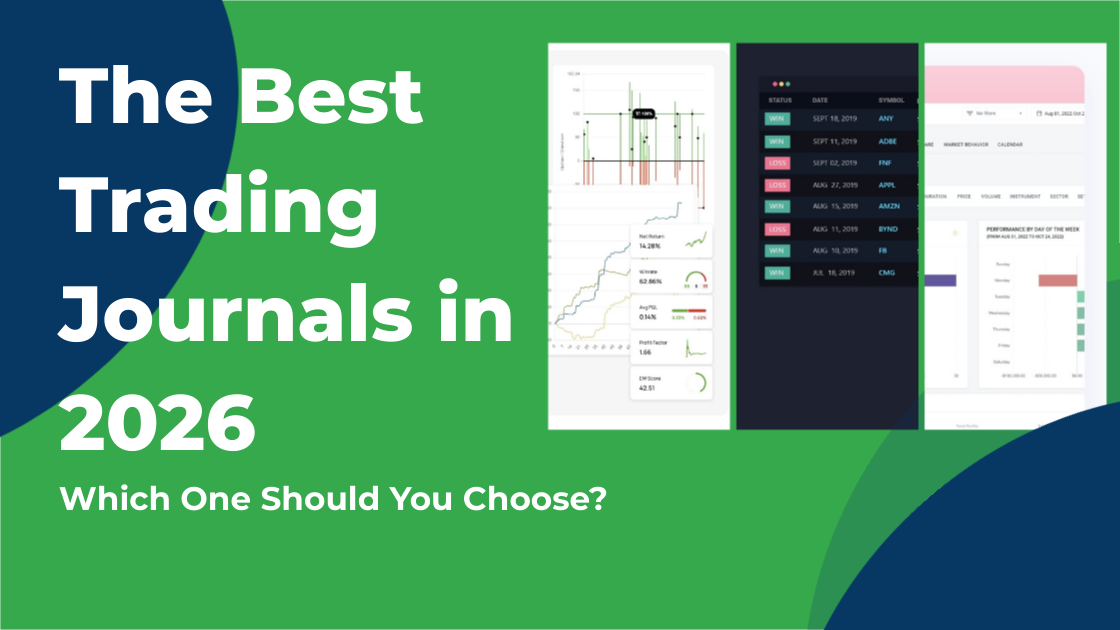Supply and Demand Trading in 2026
We have been trading supply and demand strategies for over ten years, and they have stood the test of time remarkably well. Supply and demand is...
4 min read
Rolf
Feb 23, 2016 7:00:00 PM

This tip made a big difference in my own trading. In the early days, I often had a few good days or weeks and then wiped out all my previous profits in just session and sometimes even with just one trade. Does that ring a bell for you?
Nowadays, I have a daily loss limit and when I am down 2R, which means having 2 consecutive losses, I am done. No matter what. In the beginning, it was extremely hard to follow this rule and I was often tempted to go for that third trade when I saw a potential entry, and I often did. Today, when I am down two trades, I immediately shut down my platform. I don’t look at any other charts, I leave Twitter and I don’t talk to any other traders on Skype.
I will come back to my trading a few hours later, but not to trade! I journal my past trades, recap what I did and try to find weaknesses in my game. It made a huge impact on my trading and my sanity and I highly recommend it.
Daily, weekly and monthly performance goals have to be avoided. They create a sense of urgency and also a need to trade. I have yet to see a trader who has a weekly performance goal and is long-term profitable.
One of the most dangerous thoughts is “I just need one winner to end my week positive.” Been there, done that. It never works. What happens is that you fish your reasons to trade and you’ll end up reasoning yourself into bad trades.
Instead, focus on off-the-charts goals such as: I will journal all my trades at the end of the day; I will print out my screenshots, annotate them and fold them away; I will check my checklist before every trade I take; I will not widen my stop on my trades. Try it!
I receive around 10 – 15 emails daily (and thanks a lot for so much support!), but I see recurring themes come up in most emails. You can boil down the reasons why people struggle in trading to those three areas:
(1) Big egos
This usually leads to increased risk taking, violating of stop loss rules, not wanting to make mistakes and trading without rules because you think “you know what’s going to happen” or because you think you are a great trader.
(2) High expectations
This is essentially a question of account size and your relationship with money. If your account is too small, you need to take a lot of trades or risk way too much to achieve a certain return. Traders who think in terms of $$ and then have accounts that are too small will see a major difference between their expectations and their reality which causes frustration and is demotivating.
(3) Poor work ethic
I really don’t want to call you out, but it’s such a common thread I see every day. Not having a journal, not writing trade plans and not doing any self-improvement or self-development work will keep you from growing.
If you don’t recognize that you are making progress, you’ll stop doing what you’re doing and go back to old bad behavior
I read this quote somewhere (unfortunately I forgot the source) and it is 100% true in trading. People want to have success now and they want a lot of it. However, they just see the end result and not how to get there. Small progress is not very exciting for most and it’s especially discouraging if you are aware of how far you still have to go.
Being a mountain biker, I know this very well; just focus on the next few hundred meters and keep pedaling. Don’t look up at the mountaintop and imagine how long and how painful it is probably going to be. You probably see a lot of great things on your way and there might be something beautiful and unexpected waiting for you behind the next turn – just keep pedaling one turn at a time. A trading journal is the ultimate lie detector at this point.
This is another great quote I recently came across. I picked it up in the book Super Forecasting which I also highly recommend. It ties in with the previous point about egos. No one likes to be proven wrong and see their stop hit, but it WILL happen. You should start seeing your trades as hypotheses you put on your charts and let price test them.
I usually know what I am going to do after 10 seconds; the rest is double-checking. – Magnus Carlsen
Magnus Carlsen is currently the #1 ranked chess player in the world and this quote stuck with me. You’ll often see chess players hovering over the board for a very long time before they make a move. Carlsen’s quote provides a unique insight into his thinking and it also applies to trading and the concept of gut feel.
How often have you looked at a chart and thought that you “knew” what was going to happen next? The amateur trader follows his “gut feel”, which is often just pure guessing when it isn’t backed up by years of experience, while the pro acknowledges his gut feel but then steps back from his charts to think it through.
Before making any trading decisions, but especially if you are acting on your gut feel, take your finger off the mouse and reevaluate the situation. Take out your checklist, cross-check with your trading plan, go to the higher time frame, compare correlated markets and check for upcoming news events.
I want to close off with a quote from the book “A mental game of poker” by Jared Tendler which 100% applies to trading and I am sure that many of you can relate to this:
The end goal is not to eliminate uncertainty; it’s to correct the underlying flaws in your logic that forces you to need certainty when you can’t have it yet. Without uncertainty, there is no risk. Without risk, there is nothing to gain in poker, no edge to create, and no profit to be made.

We have been trading supply and demand strategies for over ten years, and they have stood the test of time remarkably well. Supply and demand is...

3 min read
Choosing the right trading journal is essential for traders wanting to analyze performance, refine strategies, and improve consistency. In this...

3 min read
“95% of all traders fail” is the most commonly used trading related statistic around the internet. But no research paper exists that proves this...